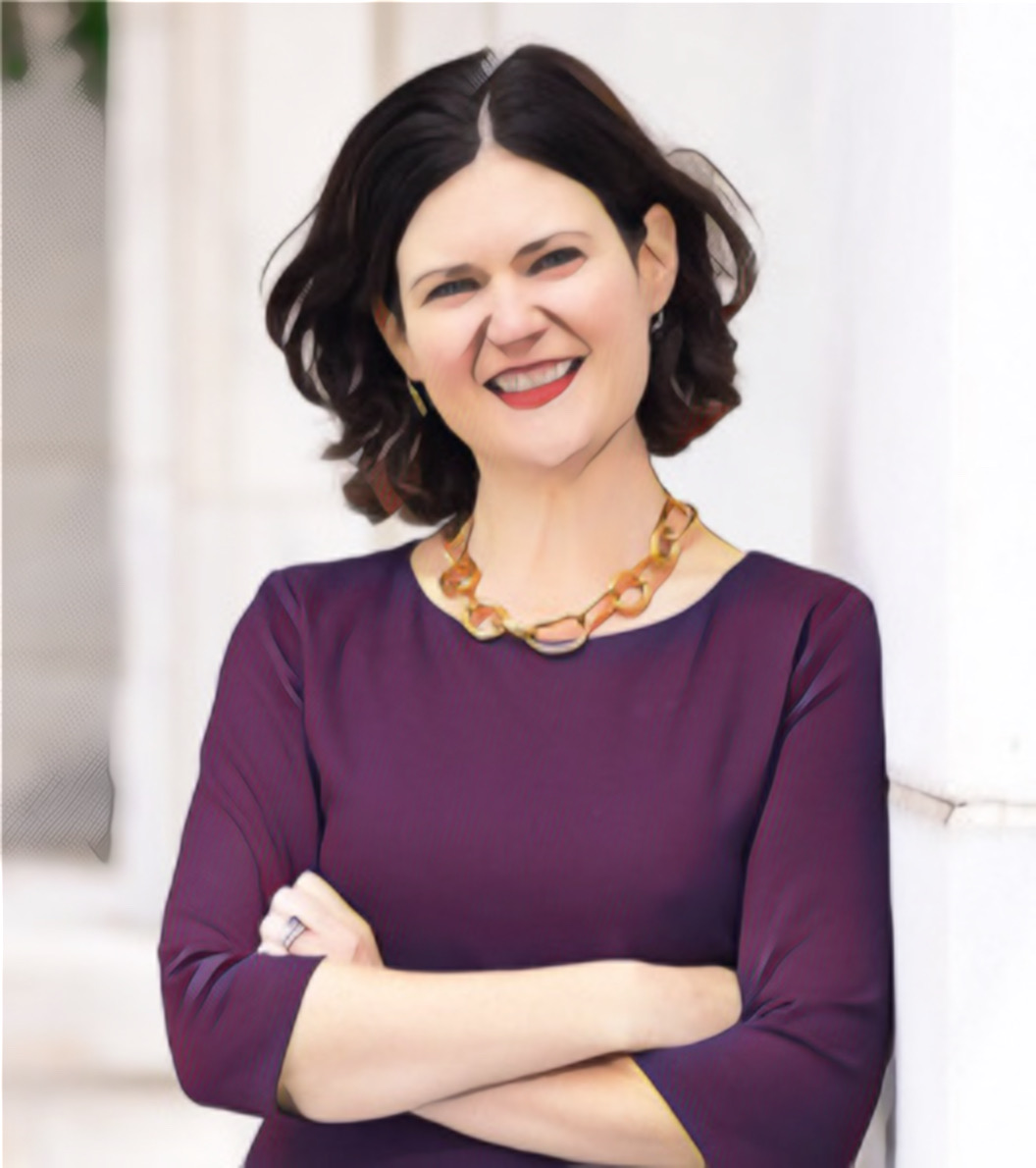Celebrating religious freedom with new citizens
The patriotism I both felt and witnessed at the naturalization ceremony brings me both hope and resolve to continue speaking up for religious freedom for all and against Christian nationalism.

On Friday, January 13, I had one of the most patriotic experiences of my life, welcoming neighbors as new citizens.
I attended a naturalization ceremony in the ornate Indian Treaty Room in the Old Executive Office Building on the White House grounds, where I had the honor of witnessing new U.S. citizens take the oath of allegiance. The two rows in the front of the room were filled with 15 new citizens, hailing from 15 different countries, with their family members and other invited guests.
Thanks to an invitation from Melissa Rogers, Executive Director of the White House Office of Faith-based and Neighborhood Partnerships, I joined several other advocates for religious freedom at this ceremony, held in honor of Religious Freedom Day. In her speech, Rogers said, “A key religious liberty principle is that there are no second-class faiths under the U.S. Constitution. … Everyone is free to practice their faith, to change their faith or practice no faith at all.”
The ceremony was the first time the White House hosted this event in honor of Religious Freedom Day. Each January 16, Religious Freedom Day marks the anniversary of the passage of the Virginia Statute for Religious Freedom, authored by Thomas Jefferson and shepherded by James Madison. It’s the state statute that served as the precursor to the First Amendment’s dual religion clauses, which protect the free exercise of religion and prevent against a government establishment of religion. Tying the naturalization ceremony to Religious Freedom Day sent a powerful signal about the centrality of religious freedom to American identity.
I also got to see diversity — both in religion and national origin — reflected in the program participants. Second Gentleman Douglas Emhoff gave the opening greeting, reflecting on the immigrant experience of his grandparents. Emhoff is Jewish, and he is the first spouse of a president or vice president to have any religious identity other than Christian. The oath of allegiance was administered by Ur Jaddou, Director of the U.S. Citizenship and Immigration Services, who herself is the daughter of immigrants from Mexico and Iraq.
This ceremony celebrated some of the best of our country’s commitment to freedom and the ability to bring one’s faith into the public square without demanding conformity. Eugene Cho, CEO of Bread for the World, received the Outstanding Americans by Choice Award during the ceremony. He spoke personally of his Christian faith, while also acknowledging that not everyone shared his religious views. I found his remarks to be the embodiment of what it means to bring our whole selves into public life, without using our power and privilege to suggest that others must believe as we do to have equal citizenship.
As all of us in the room rose to say the Pledge of Allegiance in unison, I felt tears well in my eyes. There’s beauty in being united as citizens and united across our lines of religious difference. One religion can never unite us as Americans, given the rich religious pluralism that has marked our country since its framing. But our promise to support and defend the Constitution, including its guarantees of religious freedom for everyone, can unify us.
With religious freedom, our patriotism should never require us to sacrifice our religious commitments and theological convictions. If we are forced to choose between religion and country and we sacrifice our religious beliefs, then our patriotism has drifted into the dangerous territory of nationalism.
As I speak across the United States about the dangers of Christian nationalism and the faithful advocacy of Christians Against Christian Nationalism, I am often asked, “What brings you hope?” The patriotism I both felt and witnessed at the naturalization ceremony brings me both hope and resolve to continue speaking up for religious freedom for all and against Christian nationalism.
Amanda Tyler is executive director of BJC. Follow her on Twitter: @AmandaTylerBJC.
This column first appeared in the spring 2023 edition of Report from the Capital. You can download it as a PDF or read a digital flip-through edition.




